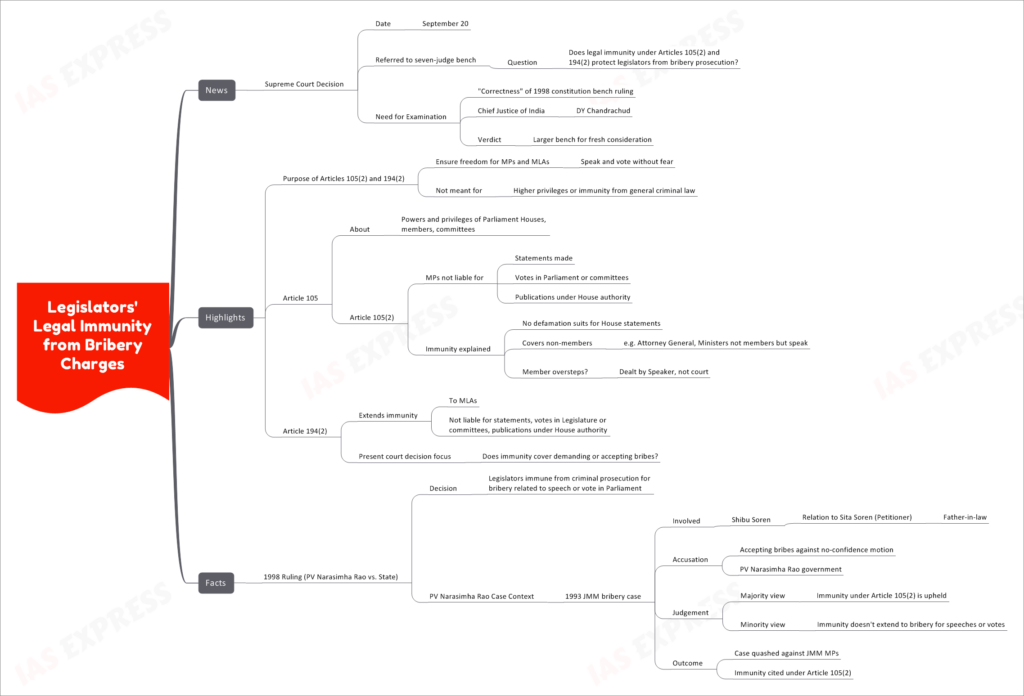Legislators’ Legal Immunity from Bribery Charges

On September 20, the Supreme Court of India made a significant decision, referring a crucial question to a seven-judge bench. This decision revolves around the interpretation of legal immunity under Articles 105(2) and 194(2) of the Indian Constitution and whether it protects legislators from bribery prosecution.
Background and Need for Examination
The need for this examination arose from the question of the “correctness” of a 1998 constitution bench ruling. Chief Justice of India DY Chandrachud presided over this matter, and the verdict was in favor of referring it to a larger bench for fresh consideration.
1998 Ruling: PV Narasimha Rao vs. State
In the 1998 case of PV Narasimha Rao vs. State, the ruling established that legislators are immune from criminal prosecution for bribery related to their speech or vote in Parliament. This case had its roots in the 1993 JMM bribery case, which involved Shibu Soren, who was the father-in-law of the petitioner, Sita Soren.
The accusation in the JMM bribery case was that bribes were accepted in exchange for votes of no-confidence against the PV Narasimha Rao government. The outcome of the case saw a majority view upholding immunity under Article 105(2), while a minority view argued that immunity doesn’t extend to bribery related to speeches or votes. Ultimately, the case against JMM MPs was quashed, citing immunity under Article 105(2).
Purpose of Articles 105(2) and 194(2)
Articles 105(2) and 194(2) of the Indian Constitution serve to ensure freedom for Members of Parliament (MPs) and Members of Legislative Assemblies (MLAs). They allow legislators to speak and vote in their respective houses without fear of legal consequences. However, it’s essential to note that these articles were not meant to confer higher privileges or immunity from general criminal law.
Article 105
Article 105 deals with the powers and privileges of Parliament Houses, its members, and committees. Under Article 105(2), MPs are not liable for statements made, votes cast in Parliament or its committees, or publications under House authority. This immunity is explained by the fact that no defamation suits can be filed for statements made within the House. Importantly, this immunity also covers non-members such as the Attorney General and Ministers who are not members but may speak in Parliament. If a member oversteps, the matter is typically addressed by the Speaker rather than the court.
Article 194(2)
Article 194(2) extends similar immunity to MLAs, ensuring that they are not liable for statements, votes, or publications made in the Legislature or its committees under House authority.
Focus of the Present Court Decision
The central issue in the present court decision is whether this immunity, as provided by Articles 105(2) and 194(2), extends to demanding or accepting bribes. This question has significant implications for the legal accountability of legislators and the interpretation of the Indian Constitution.
The Supreme Court’s recent decision to refer this matter to a seven-judge bench underscores the importance of clarifying the scope of legislative immunity in cases involving bribery, ensuring that the law is in line with the principles of justice and accountability.
If you like this post, please share your feedback in the comments section below so that we will upload more posts like this.
